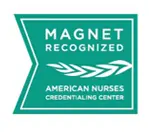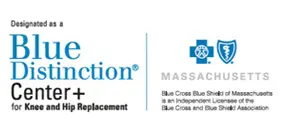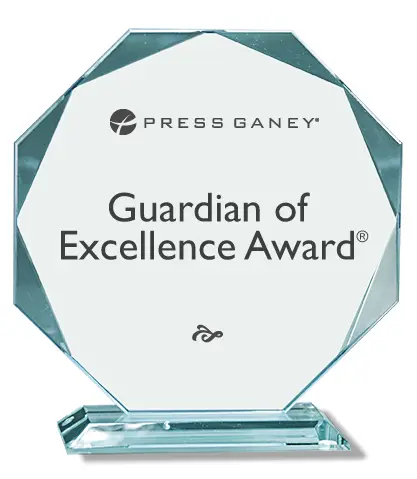Registered Nurse Manager Emergency Department
- Req. Number: R-18030
-
Address:
55 Fogg RoadWeymouth,MA
- Department: SSH Emergency Department Admin
- Status: Full time
- Shift: Day
- Schedule: 4 ten hour days Monday thru Friday
Job Description Summary
Under the direction of the Divisional Director of the service, the Nurse Manager has 24–hour responsibility for the effective implementation of the philosophy, goals, policies and procedures of the Hospital and the Nursing Department and their effect on patient care in a designated unit. The Nurse Manager has authority to make decisions on that unit in the areas of patient care, human resource and financial management.
Job Description
1. Regulatory Compliance
Monitors/maintains unit compliance with regulatory, accrediting and Hospital policy for patient services, and environmental and personnel safety.
a. Maintains and reports unit compliance with regulatory agencies' standards (i.e., OSHA, JCAHO, DPH, FDA) to Divisional Director.
b. Monitors safe environment as evidenced by documentation of follow-up action plan on incident reports.
c. Monitors the staff's understanding of and compliance with established emergency, infection control and/or Universal Precautions procedures.
d. Monitors unit specific equipment for safe use, as evidenced by up-to-date electrical checks, use of maintenance log and/or removal of unsafe equipment from the unit.
e. Ensures that the environment of care is regulatory ready at all times. (free of clutter, medications secured, universal precautions in place, etc.
2. Professional Development
Maintains current license and knowledge of nursing care requirements for all patients on the unit. Assesses need for personal growth and development and takes the initiative in seeking opportunities to meet this need.
a. Develops written goals and achieves goals - 90 day plans based on individual and unit needs as evidenced by the performance appraisal.
b. Represents nursing through participation in professional nursing activities as evidenced by attendance at meetings of professional nursing organizations.Shares information obtained at continuing educational programs with peers by verbal and/or written report to division operations. .
c. Maintains current certifications/license as required by job
d. Actively participates in organizational leadership development programs.
3. Problem Resolution
Accurately identifies real/potential problems affecting the service and implements solutions with follow-through and communication.
a. Responds to reported problems/complaints based on urgency.
b. Completes required documentation of problem, investigative findings, action plan and follow up letter/reports within the established time frame.
c. Identifies and takes action to address potential system and safety issues.
d. Utilizes Shared Governance model on unit to resolve real/potential problems and to implement improvements/change.
4. Shared Management
Fosters a service that is consistent with the patient care beliefs and shared management philosophy of the department.
a. Provides for opportunity for shared governance council representatives to share progress of shared management model, project team, etc., as evidenced by staff meeting minutes.
b. Supports staff involvement in project teams/committees/shared governance.
c. Participates in or chairs projects or committees as volunteered or assigned.
5. Staff Development
Responsible for on-going development of staff and unit specific patient care programs.
a. Collaborates with unit based or assigned Clinical Nurse Specialist to plan for orientation of new personnel and unit specific education/in-service as needed.
b. Works with Clinical Nurse Specialist and Operations Supervisor to monitor staff compliance with mandatory educational activities .
c. Through goal-setting and the performance review process, works with staff to develop opportunities for professional advancement including the Clinical Ladder.
d. Encourages and supports staff nurse certification in a clinical specialty as applicable to the unit patient population.
6. Communication
Disseminates information to staff members that directly relates to the unit, divisional, departmental and organizational changes, programs and strategic goals.
a. Plans for, directs and documents regularly scheduled staff meetings as evidenced by staff meeting minutes.
b. Participates in divisional/departmental/administrative team meetings, disseminates information to staff as evidenced by attendance documentation and staff minutes.
c. Utilizes established communication mechanism to provide information to administrative clinical coordinators covering the unit on off-shifts.
d. Monitors staff attendance at organizational programs and initiatives.
e. Actively communicates with staff members on all shifts and directly addresses all staff issues/problems/concerns.
f. Actively participates in all Culture of Service Excellence activities. Disseminates all COSE information to staff members and supports their attendance at quarterly forums and participation in COSE activities.
g. Efficiently uses Lotus Notes to read and respond to email in a timely fashion.
7. Fiscal Management
Responsible for effective and efficient fiscal management of department operations to ensure proper utilization of organizational and financial resources.
a. Manages hours worked, including overtime for all unit personnel. Identifies trends and makes recommendations when appropriate.
b. Monitors and controls salary and wages budget. Analysis of variance is completed as requested.
c. Monitors and controls supply and expense budget. Analysis will reflect changes in volume and practice and associated supply/expense variances.
d. Develops annual supply and salary/wage budget for all cost centers assigned. Collaborates with departmental director to provide justification for requested fiscal allocation.
e. Projects and recommends capital equipment needs for the unit and provides back-up documentation and justification.
f. Interprets budget to staff and enlists their cooperation in cost containment as evidenced by staff minutes, NDNQI and culture audit results.
8. Operational Management
Is responsible for department’s operational excellence; assures department delivers quality services in accordance with applicable policies, procedures and professional standards.
a. Manages all activities so that quality services are provided in an efficient and effective manner.
b. Maintains an effective quality improvement program as evidenced by dashboard reports and quality outcome measures. Engages front line staff in the development and execution of quality plan and quality improvement projects.
c. Completes assigned incident report follow up in a timely manner.
d. Is proficient in the interpretation of unit based Press Ganey results. Disseminates information to staff members and develops unit based plans to improve patient satisfaction scores.
e. Is a role model for staff in responses to patient concerns/complaints.
f. Demonstrates commitment to enhancing patient flow by supporting interdisciplinary rounds, compliance with 30 minute report and discharges before noon.
9. Human Resource Management
Manages human resources to assure quality services and promote positive employee relations.
a. Consistently and fairly implements human resources policies including the implementation of corrective action.
b. Maintains effective and appropriate staffing by monitoring employee turnover, overtime and absenteeism.
c. Employee performance appraisals are completed , performance based and submitted on time.
d. Uses behavioral interviewing when hiring new staff. Collaborates with HR liaison, CNS, and staff to effectively screen and hire candidates that meet both the culture and clinical criteria.
e. Is recognized as a positive role model and has demonstrated staff engagement through NDNQI and culture audits.
f. Engages in positive recognition activities related to staff performance.
10. Organizational Support
a. Consistently uses patient rounding to identify clinical and patient satisfaction issues, concerns, bed flow issues and communicates pertinent patient and unit information to the Director.
b. Assists the Divisional Director in development, implementation and evaluation of on-going service programs which assure quality nursing, and patient care programs consistent with the Hospital mission.
11. Safety
Fosters a “Culture of Safety” through personal ownership and commitment to a safe environment.
a. Monitors and provides follow up with any and all staff compliance issues related to safety (i.e. "time out" with invasive procedures, patient identification, Do Not Use abbreviations, Telephone orders, Infection control standards, Use of equipment and bed alarms and compliance with fall risk assessment).
b. Addresses all actual and potential safety risks as identified through the Chain of Command by staff or by other organizational bodies.
12. Collaboration
Collaborates with other organizational departments to improve and enhance patient care services.
a. Utilizes appropriate resources within the institution to provide consultation, education, technical or informational services as needed for self, staff and patients.
b. Initiates interdepartmental communication to ensure problems are resolved and special needs are met.
c. Works with other organizational departments to advocate for, develop and implement service enhancements for patient and families
13. Capacity Management and Resource Allocation
In collaboration with the Director efficiently utilizes all resources and facilitates optimum capacity management to meet the needs of the organization and the unit.
a. Includes the Operations Supervisor, Charge Nurse and ACC in the allocation of nursing staff resources for their unit(s).
b. Collaborates with other areas of the organization and serves as a clinical expert resource to support efficient, effective and safe patient care and patient flow
c. Identifies and addresses areas for improvement that impact the unit's ability to efficiently use supplies
d. Collaborates with staff, Operations Supervisor, CNS and Physician Leadership to enhance operational and clinical systems.
Demonstrated leadership ability and potential managerial competency. Evidence of this includes, but is not limited to, effective communication skills, ability to deal well with people, ability to problem solve, ability to confront/resolve issues, ability to motivate others, ability to plan, organize and direct the activities of others
Minimum Education - Preferred
BSN required, MS preferred
Minimum Work Experience
Prefer five (5) years clinical experience and a minimum of two(2) years of management experience
Essential Function (Cont.)
I. Technology and Learning
a. Participates in continued learning and possess a willingness and ability to learn and utilize new technology and procedures that continue to develop in their role and throughout the organization.
b. Embraces technological advances that allow us to communicate information effectively and efficiently based on role - for example, Lotus Notes or Meditech System.






